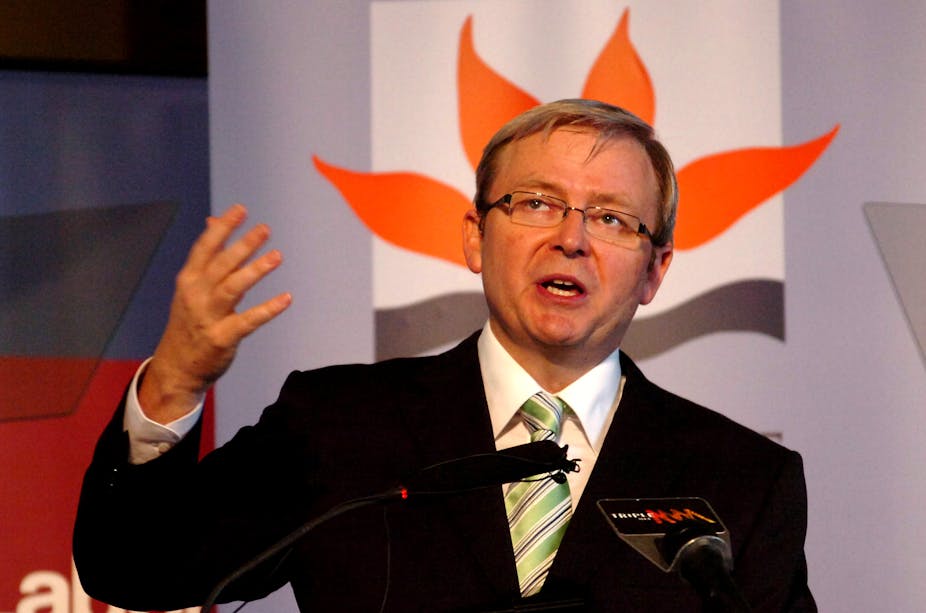From the time Julia Gillard succeeded Kevin Rudd as prime minister there was a ticking time bomb that no one thought to defuse.
His promised inclusion in a cabinet whose membership was instrumental in deposing him was bizarre in itself, especially given very detailed knowledge of how Rudd had ruthlessly undermined his Labor predecessor, Kim Beazley, and his known penchant for vindictiveness. And why did the ALP hierarchy not seek to dissuade him from recontesting his seat after he was ousted?
The fact the party kept Rudd within the tent was a major mistake. Those who had worked closely with him and who had deserted him well knew that he was incapable of working as part of a team, which was precisely why he had been deposed.
One has only to go back to the widely disseminated image of an ashen-faced Rudd, wallowing in visual self pity as he sat on the backbench after being deposed, to see that this was trouble in the making.
The last time a deposed prime minister accepted office under a successor was in 1971 when Billy McMahon toppled John Gorton in a party room vote which then inexplicably elected Gorton as deputy leader, guaranteeing him portfolio of his choice. Gorton opted for defence in which he used his position to settle scores, five months later forcing McMahon to sack him for disloyalty.
The main reasons for replacing Rudd – which Gillard has never been able to articulate to the Australian people, to her continuing disadvantage – were first, doubts about his ability to win the next election after a spectacular decline in the opinion polls, and, second, Rudd’s inability to work as part of a team.
As long as he remained in parliament, and more importantly, as a member of a cabinet the majority of whose members would rather not have him there, there was always a focal point for trouble, whether it was from Rudd’s own ambition or from discontent from Gillard’s leadership.
And that trouble has materialised as the government’s fortunes have declined. Rudd has become, almost inevitably, the lightning rod for internal dissent from demoted ministers such as Robert McClelland and Kim Carr, and ministers frustrated with their portfolios, such as Chris Bowen in immigration. Other members in marginal seats, such as NSW members Janelle Saffin and Mike Kelly, have been targeted by the gambling industry over Gillard’s now abandoned gaming reforms.
There is little doubt Rudd has worked to destabilise the government, and his Washington resignation speech, so full of unctuous self promotion, was nothing if not a job application, addressed to the same people who decided less than two years ago that he was not up to it.
Next week, it now seems, will determine whether Rudd gets another chance, without any sign of change from what he was, or whether Gillard can rid herself of the shadow that has continued to dog her prime ministership.
Either way – or even with a compromise candidate such as Simon Crean emerging – the best Labor can hope for is to stem the bleeding rather than avert the looming train wreck, whenever the election is fought.

